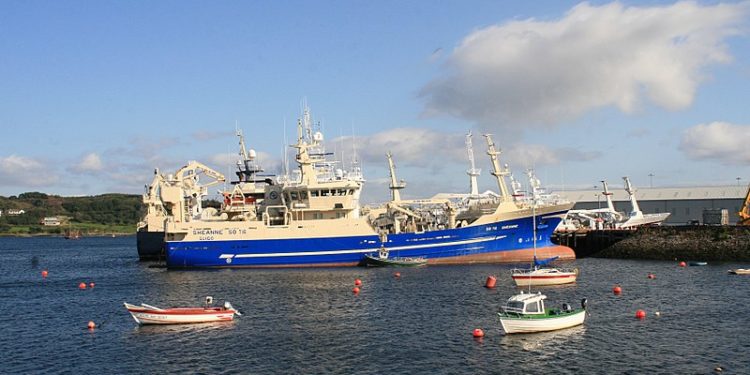The Chief Executive of the Killybegs Fishermen’s Organisation has welcomed the latest Brexit declaration as having achieved specific acknowledgment and reference to the crucial issue of the linkage between access and quotas to the wider trade issue.
‘I have always maintained that the key to a successful fisheries outcome is linking access and quota share to the wider trade negotiations,’ said KFO CEO, Seán O’Donoghue, responding to the 36-page draft text, which is part of a package alongside the legal treaty on Britain’s withdrawal from the EU.
He said that Paragraph 75 of the text states: “Within the context of the overall economic partnership the Parties should establish a new fisheries agreement on, inter alia, access to waters and quota shares.”
He added that a new EU-UK agreement on fisheries would form part of the overall new relationship between the two. The sides aim to “conclude and ratify their new fisheries agreement by 1 July 2020.”
Building on the momentum of last week’s publication of the draft withdrawal agreement and outline political declaration, the Irish fishing industry is currently relatively well-placed to avoid a disastrous hard Brexit.
‘While we are quite encouraged by the documents we have seen to date, I said last week that strong foundations have now been laid, we cannot afford to take our eye off the ball. We’ve begun well but we’re not even at half-time yet. We know only too well from experience that fisheries negotiations are multi-faceted and highly complex and much remains to be agreed,’ Seán O’Donoghue said.
‘We firmly believe that the future framework for fisheries, after the transition period, needs to maintain the current levels of reciprocal access to waters and markets, as well as sound science-based fisheries management. The text presented to date takes the first steps to deliver on this and we look forward to productive negotiations in the near future.’
He commented that Ireland’s two biggest fisheries, mackerel (60%) and nephrops (40%) (or prawns) are hugely dependent on access to UK waters with the overall dependency for all stocks of over 30%.
‘Maintaining reciprocal access to waters and resources need to be at the heart of the post-Brexit relationship in fisheries given the historic ties and inextricable links between our countries and industries,’ Seán O’Donoghue stated.
He paid tribute to the effectiveness of the united approach taken by the European Fisheries Alliance (EUFA) which was established less than two months after the British vote to protect the interests of fleets from national organisations in Belgium, Denmark, France, Germany, Ireland, the Netherlands, Poland, Spain and Sweden.
He acknowledged that in terms of fisheries, these high-stakes negotiations have been very efficiently managed by the Irish Government to date, particularly the Taoiseach Leo Varadkar, Tánaiste Simon Coveney and Minister Michael Creed in tandem with EU Chief Negotiator, Michel Barnier and their respective officials.









